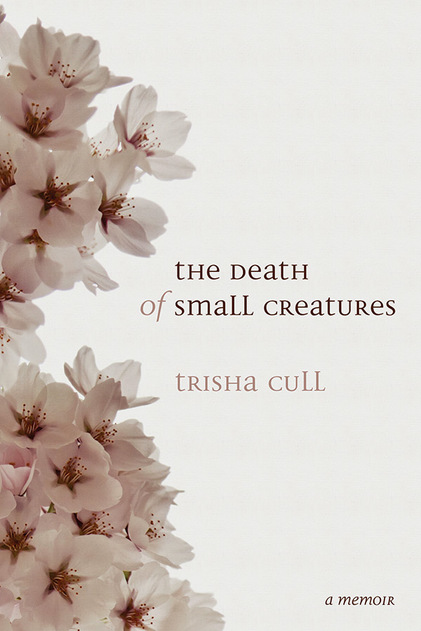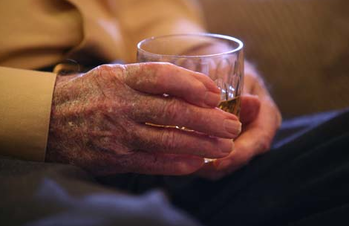
Recommended For:
Those interested in psychiatry or wanting to see mental illness from a firsthand perspective
 Trisha Cull is a well-published writer and poet from British Columbia. Though initially known for her writing and poetic art, Trisha recently released her memoir The Death of Small Creatures, that powerfully depicts a part of her life many did not appreciate before. In this haunting and powerful novel, Cull describes her struggles and battles with bulimia, bipolar disorder, and substance use. While the book is thought by readers to be confusing at times, it details the reality that many individuals with mental illness face day in and day out, struggling with feelings of hopelessness, helplessness, and ultimately vulnerability. Recommended For: Those interested in psychiatry or wanting to see mental illness from a firsthand perspective
0 Comments
"Cultural and academic pressures mean many more young children are exhibiting symptoms of anxiety; a new mental health conference is hoping to find a solution...Mr Clegg said that an extra £1.25 billion would be spent on treatment for children with mental health problems, as he asserted that “there would be an outcry if a child with diabetes was left to cope without support or treatment."
Read more: http://www.telegraph.co.uk/education/educationnews/11566364/Relentless-testing-leading-to-schools-rife-with-anxiety.html
 Substance use and problematic gambling don't discriminate based on age in older adulthood. However, societal perceptions of aging may make us less likely to identify risky behaviours in this population. A recently published article in the Miami Herald gives a well-informed overview of such behaviours in seniors. "Think older adults are just sitting around and watching TV? Not always so. They may be engaging in risky behaviors that can impact their physical and emotional health and finances. The four biggest concerns, experts say: unprotected sex, gambling, binge drinking and misusing drugs." To learn more, visit : http://www.miamiherald.com/living/health-fitness/article19325847.html It is well-established that a healthy balanced diet is important for maintaining and improving physical health. Eating the right foods can also be beneficial for mental health. Read some of the major links between diet and mental health.
http://www.care2.com/greenliving/7-major-links-between-diet-and-mental-health.html "A discovery about the brain may offer new hope to smokers finding it hard to quit. Scientists writing in the journal Nature Communications describe how they identified circuits in the brain that they believe are responsible for the anxiety that often accompanies nicotine withdrawal."
Read more: http://www.medicalnewstoday.com/articles/292778.php  Most Canadians are familiar with the terms 'anorexia' and 'bulemia'... in the public consciousness, one suggests not eating enough, the other suggests overeating and then inducing vomiting. Both are characterized by a deranged relationship with dietary control: either dietary control is severe to the point of starving (in anorexia) or fluctuating in episodes of out-of-control binging and 'corrective' purging (in bulemia). A new, not-yet-a-diagnosis eating disorder is becoming more prevalent in North America: Orthorexia Nervosa. Unlike Anorexia or Bulemia, Orthorexia's focus isn't on 'getting thin', it's on 'eating healthy'. However, it is not the intention to eat healthy that is the problem for an Orthorexic, it is the extent to which it's taken. More and more foods they formerly enjoyed are cut out as not being healthy enough to make the grade. Meals with friends and family disappear, as no one else can live up to their dietary requirements. Restaurants and social meals likewise disappear. Many Orthorexics report feeling socially isolated, exhausted by their obsession with eating healthy, and depressed. Eventually and ironically, the health of Orthorexics declines as the restriction and 'purification' of their diet means it becomes deficient in key nutrients needed for life. Orthorexia is getting more exposure as a problem for those affected by it; it was recently featured on an episode of The Current with Anna Maria Tremonti. The episode is available here. More information on Orthorexia Nervosa, courtesy of the National Eating Disorders Association here. How social media is affecting the personal perception of young adolescent girls, fostering #depression and #anxiety:
http://www.dailymail.co.uk/news/article-3046222/Toll-social-media-girls-mental-health-Sexualised-images-fuelling-rise-anxiety-pupils-aged-11-13.html |
Description
Supporting and enhancing students' and health professionals' knowledge and understanding of mental health and psychiatry
Archives
June 2017
Categories
All
|